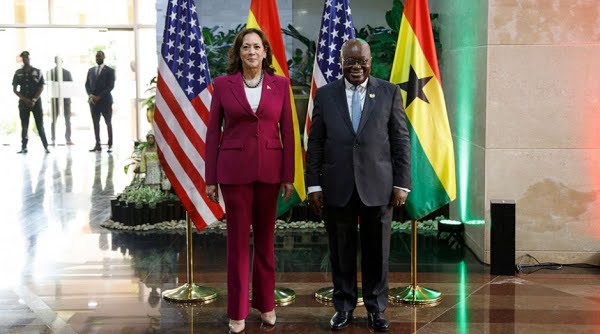More needs to be done to ensure that new items published by media outlets, social media influencers, and bloggers are accurate, verifiable, and put in the right context. Ace media practitioner Francis Kokutse, citing a recent example of bad press given to the President of the country, Nana Akufo-Addo, expressed grave concerns about misinformation and disinformation.
“Look, when the US Vice President came here [Ghana] and she was in Accra, I followed her Associated Press. What President Akufo-Addo said in answer to the lady’s talk about freedom for the LGBTQI+ community, if you see the way some people have turned it on social media, it is different from what President Akufo-Addo said. Unfortunately, those news [items] on social media are what people would believe. They won’t believe what Graphic, Times, and GBC are saying,” Francis Kokutse, a media practitioner, said of the dangers of misinformation and disinformation when he spoke to Mark Smith on A1 Radio’s Day Break Upper East Show.
Mr. Kokutse, a media practitioner with decades of experience, expressed worry about the damage untrained media practitioners, as well as clout-chasing social media influencers, could do as Ghana deals with media plurality and the adoption of social media.
He explained that verified news portals sold very little content while sensational media outlets and social media pages drew all the attention, a situation that calls for serious attention.
“Traditional media has a role to play. They can put out the proper stories, cross-check them, and put them out there, but how many people would read them? Look currently at GBC. GBC won’t just put out any story; they would cross-check the stories, but if you watch their website, you find that the number of people who go on it is not huge. But if you take an unknown person sitting alone in his room and have him write nonsensical things on his new portal, you will get a large crowd reading it. So it is a terrible situation, and we can only change it through education.”
Mr. Kokutse encouraged media practitioners to use the digital tools available to them, like the Google Reverse Image Search, to verify news items before publication.
In line with helping media practitioners deal with misinformation and disinformation, the Media Foundation for West Africa (MFWA) recently trained 125 journalists across the country on fact-checking and countering mis-disinformation in Ghana. The purpose of the two-day training series was to expose the journalists to concepts such as information disorder, fake news, and misinformation, how pervasive they are, how they manifest, as well as their impact on peace and democratic governance.
The second component of the training provided a deep dive into some fact-checking and verification tools that can be used to identify and counter misinformation, as well as fact-checking standards and ethics. In Tamale, the journalists were brought together from the Upper East, Upper West, Northern, North East, Savannah, and Bono East regions. Similar training was organised in Kumasi, Ho, and Accra.
Source: A1radioonline.com|101.1MHz|Mark Kwasi Ahumah Smith|Ghana


